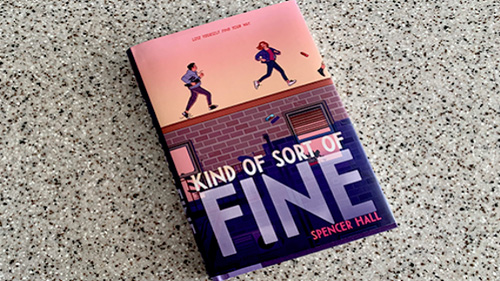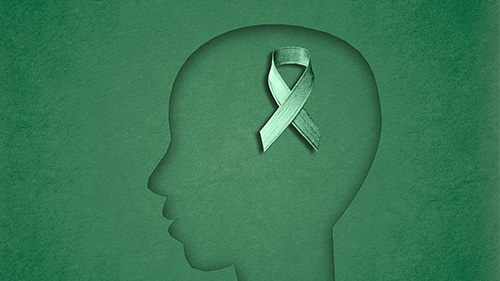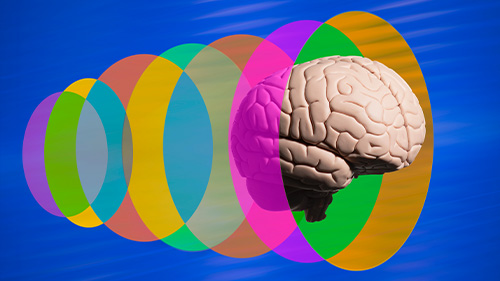Mental Health Awareness: Are u ok?
Being a teenager means a lot of things, but starting to date and get into romantic relationships or friendships sticks out as a huge milestone. The...
AP & Honors Mathematics
Explore Wiley titles to support both AP and Honors mathematics instruction.
Literacy Skills & Intensive Reading
Connections: Reading – Grades 6–12
Empower student success with a proven intensive reading program that develops strong reading skills in striving readers.
Drama, Speech & Debate
Basic Drama Projects 10th Edition
Build students’ confidence and competence with comprehensive, project-based theatre instruction.
Literature
Connections: Literature
Support learners as they study dynamic, relevant texts and bring the richness of diverse voices to students through literature.
Literature & Thought
Develop critical thinking, reading, and writing across literacy themes, genres, historical eras, and current events.
Language Arts
Vocabu-Lit® – Grades 6–12
Help students build word power using high-quality contemporary and classic literature, nonfiction, essays, and more.
Connections: Writing & Language
Help students develop grammar, usage, mechanics, vocabulary, spelling, and writing and editing skills.
Reading/English Language Arts
Measuring Up to the English Language Arts Standards
Incorporate standards-driven teaching strategies to complement your ELA curriculum.
English Language Learners
Measuring Up for English Language Learners
Incorporate research-based best practices for ELLs with an approach that includes a focus on language acquisition strategies.
Mathematics
Measuring Up to the Mathematics Standards
Incorporate standards-driven teaching strategies to complement your mathematics curriculum.
Foundations
Measuring Up Foundations
Help students master foundational math skills that are critical for students to find academic success.
Science
Measuring Up to the Next Generation Science Standards
Give students comprehensive NGSS coverage while targeting instruction and providing rigorous standards practice.
Assessment
Measuring Up Live
Deliver innovative assessment and practice technology designed to offer data-driven instructional support.
For a better website experience, please confirm you are in:

A bright part of every teacher’s day is getting to the class that your star student is in. You know the one. We see them reach for the sky every time we ask the class a question, they volunteer their personal time to help us staple packets, and they befriend the quiet kid during partner activities. They are just pure perfection!
And sometimes that perfection can be the issue. They take on any task or responsibility they can to accelerate in their academics, extracurriculars, or relationships with teachers and others. They pack their time after school and head off to part-time jobs that will help them write a great college entrance essay. They lead our student government, lead pep rallies, and cover every football game for the yearbook. For a 14- to 18-year-old, that’s a lot.
Bright students need to care for their mental health just like other students, even if they seem to be handling it fine in our teacher-eyes. In Kind of Sort of Fine by Spencer Hall, Hayley, one of the two main characters, is this student. One day during school she drives through the loop and stops her car in front of the building and has a mental breakdown in front of everyone. She refuses to leave her car or move it; the police have to be called; and she has to be escorted away from school for a while. It was humiliating, but it forced Hayley to take a step back and become healthier, which means lightening her load during her senior year—a very important year for scholarships and college applications, and something she’s worked endlessly on for years.
Through mandatory counseling and quitting her extracurriculars, including the tennis team (her home away from home), Hayley begins a journey she never wanted, but really needs—a change of pace and prioritizing her health. In chapter five, Hayley attends one of her counseling sessions with Dr. Kim, who prompts her to think about what she can control and what she cannot. (Especially all the judgmental stares and whispers happening when she walks into a room.) Upon hearing that she has to take a huge step back, including taking TV Production instead of AP-level classes, from her normal life schedule, Hayley isn’t too thrilled.
I don’t like stepping back; I like moving forward. In sixth grade there was a reading challenge at my school. Every kid who read twenty-five books or more by the end of the year got an award. They made a special plaque for me because I read seventy-nine books, easily lapping the other kids in my class. At the awards assembly, the principal slapped my shoulder and said, “This girl’s got ambition.” That’s who I’ve always been, a girl with ambition. “I don’t want to slow down too much,’ I say. “The early bird gets the worm, you know?”... “It feels like things are slipping through my fingers. I can’t even control my own schedule.” (Hall 33)
Let’s do the same activity that Dr. Kim had Hayley do—listing and drawing conclusions about things you can and can’t control.
|
Things I Can Control What I wear How I engage in class What I say to people How I treat people How I label people |
Things I Can’t Control The weather How much homework is assigned What others think of me What others say to/about me How others label me If people like me |
There you go. I understand high school isn’t easy. There’s academic pressure and social pressure, but look at your board. You have power, Hayley. The same power you’ve always had is still inside you. If you don’t like the way the system operates, you have the power to be a source of change. (Hall 35)
Interested in buying any of the books mentioned in this post? Visit our classroom libraries page.
Download the lesson below to save or print easily!
Jennifer Epping is a high school English and journalism teacher in Des Moines, Iowa. She has a passion for reading, writing, and making lame jokes to her students just to see them laugh or roll their eyes. She just concluded her ninth year teaching. Epping graduated from Iowa State University with a BS in journalism and mass communication (2010) and BA in English Education (2013). She attended New York University’s Summer Publishing Institute (2010), and spent some time in children’s book publishing in New York.

Being a teenager means a lot of things, but starting to date and get into romantic relationships or friendships sticks out as a huge milestone. The...

May is Mental Health Awareness Month. It’s also the last full month of school for traditionally-scheduled districts. I think mental health is the...

The words are never right. The time is never perfect. And life keeps piling stress after stress onto the people we love. What do we say to someone...

To be mentally healthy requires work, and many youth and their families turn to some kind of therapy, counseling, or inpatient program to aid in that...

Mental health is just as important as our physical health, and many educators understand this. According to the National Institute of Mental Health,...

Juno Dawson is a prominent transgender activist and writer. Known for her fact-driven books, she focuses on topics teens wonder about or need to...

You know those books that you hug at the end? This is one of those books. All The Bright Places by Jennifer Niven is just plain good—heartbreaking,...

In Yolk, author Mary H.K. Choi portrays a pair of estranged sisters. They’ve grown apart following their childhood in Texas, and now both live in New...

It’s not a secret that people compare American schools with other countries’ schools, and Chinese schools are known as some of the strictest in terms...

For book lovers, it’s nothing new to read a good book and seek out the movie rendition, but for students, many seek out movies or TV shows and then...

Before transitioning away from life as a public school educator, I worked as the academic trainer for English and social studies in a large, urban...

When my mother was going to school in the panhandle of Texas, she and her friends were punished if they spoke Spanish in school. When my brothers and...
